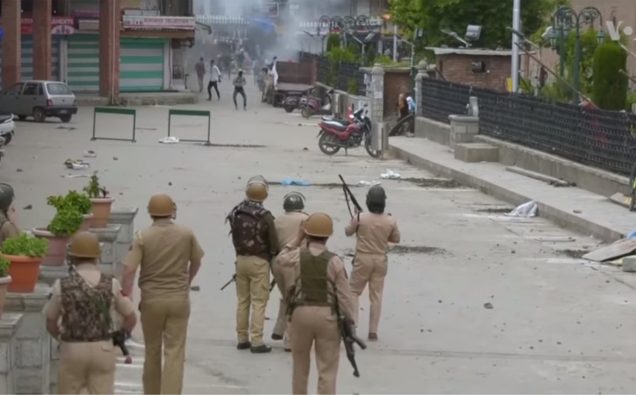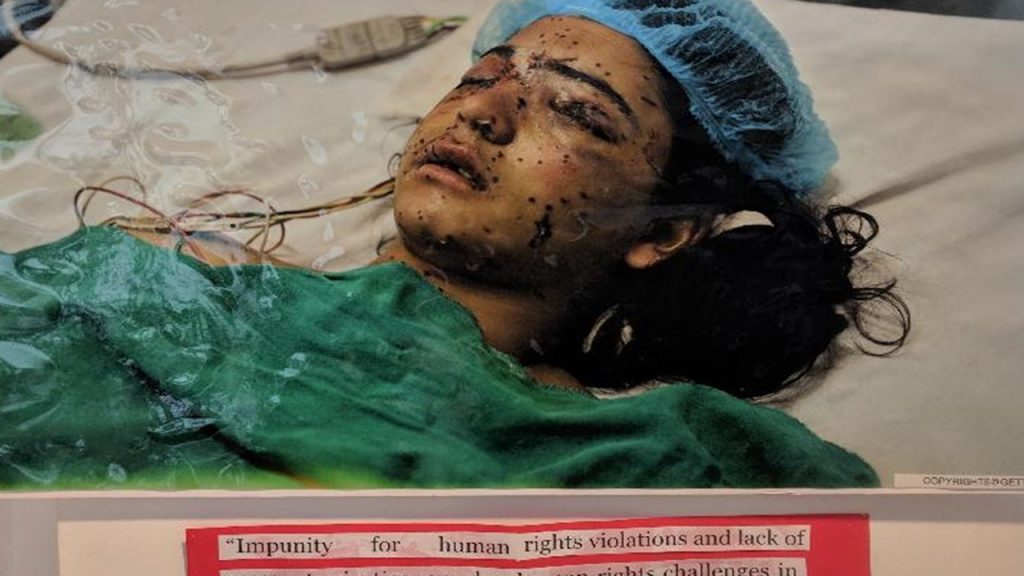
As the Kashmir clampdown continues into the second month, Indian origin advocates have asked the Bill & Melinda Gates Foundation not to give an award to Prime Minister Narendra Modi for his sanitation and toilet access project in India.
In a jointly penned Washington Post opinion piece, Suchitra Vijayan, a lawyer and executive director of the Polis Project, and Arjun Singh Sethi, a human rights lawyer and adjunct professor of law at Georgetown University Law Center, cite festering conditions and repression in the disputed Kashmir region and Assam state.
“While public health is undoubtedly a priority in India and around the world, such an honour would come as his Hindu nationalist party has incited violence against minorities, silenced dissent and curtailed freedom of expression,” they write.
“In light of Modi’s record, including promoting repressive policies in the past month in Kashmir and the northeastern state of Assam, he should not be given the award,” they argue.
“If the Gates Foundation really wants to amplify sanitation efforts in India, it should give the award to community workers instead of a far-right nationalist,” the authors instead suggest.

Picture taken by Views and News of a poster exhibition on Kashmir at Pakistan Embassy in Washington D.C.
The opinion piece comes amid growing alarm over human rights violations in Kashmir and Assam. In Kashmir security forces have used pellet guns and according to a BBC report used harsh methods including torture to suppress political dissent and demand for freedom.
Defending the move to deprive Kashmir of its autonomy, PM Modi has said the step has been taken to mainstream Kashmir and bring jobs and prosperity to the local people.
Kashmiris, on the other hand, say the change in status will allow Indians to have settlements on their territory and change the demography of the area to their disadvantage.
Indian Minister of State in the Prime Minister’s Office, Jitendra Singh, announced earlier this week that Modi will receive an award from the foundation for his 2014 “Swachh Bharat Abhiyaan” (Clean India Mission) from during his visit to the United States later this month.
Ms. Vijayan and Mr. Sethi, remind the Foundation that “since Aug. 5, India has imposed an unprecedented communication blockade on Kashmir. Landlines, mobile phones and the Internet have been suspended. Many Kashmiris remain cut off from their families, and a strict curfew is still in place in many areas. In the days leading up to the blockade, 38,000 troops were moved into the Kashmir Valley, putting the total troop count at more than 500,000 in what was already one of the world’s most militarized regions.
“The reports that have emerged from Kashmir since the blackout are frightening. Thousands of Kashmiris, including human rights advocates, elected officials and even young students, have reportedly been arrested in raids. The local prisons are full, according to a local magistrate, and many detainees have been flown out of the region. Family members wait in anguish, fearing that their loved ones may be forcibly disappeared, as an estimated 8,000 Kashmiris were before them. There have been reports of torture and police violence. Compounding this is a humanitarian crisis, as patients in Kashmir can’t access medicine and life-saving treatment.
“At the same time, Modi is also pursuing an exclusionary strategy in Assam. On Aug. 31, the government published a list that excluded about 1.9 million people who it claims don’t have the appropriate documents to prove their citizenship. Many are Muslims, women and children from low-income and impoverished backgrounds. Those excluded from the list have 120 days to appeal and prove their citizenship, and if they fail, could be detained or deported
“The human tragedies in Kashmir and Assam are consistent with Modi’s human rights record dating back to his time as the chief minister of Gujarat, when Hindu mobs across the state slaughtered 2,000 Muslims, destroyed and looted their homes and property and displaced tens of thousands. Modi failed to protect those who were attacked — and reports suggest that he might have even been complicit. This year, Nishrin Jafri Hussain — the daughter of Ehsan Jafri, who was burned alive during riots — tellingly wrote that ‘fighting for justice and human rights in India is a long and lonely battle,’ a sentiment echoed by other survivors. As a result of the violence, the U.S. government denied Modi a visa in 2005, a ban that remained in place until 2014. As of 2014, Modi was the only person ever to be banned from the United States under the International Religious Freedom Act.”












